How to transform your photos into Ghibly style (and other) pictures using ChatGPT
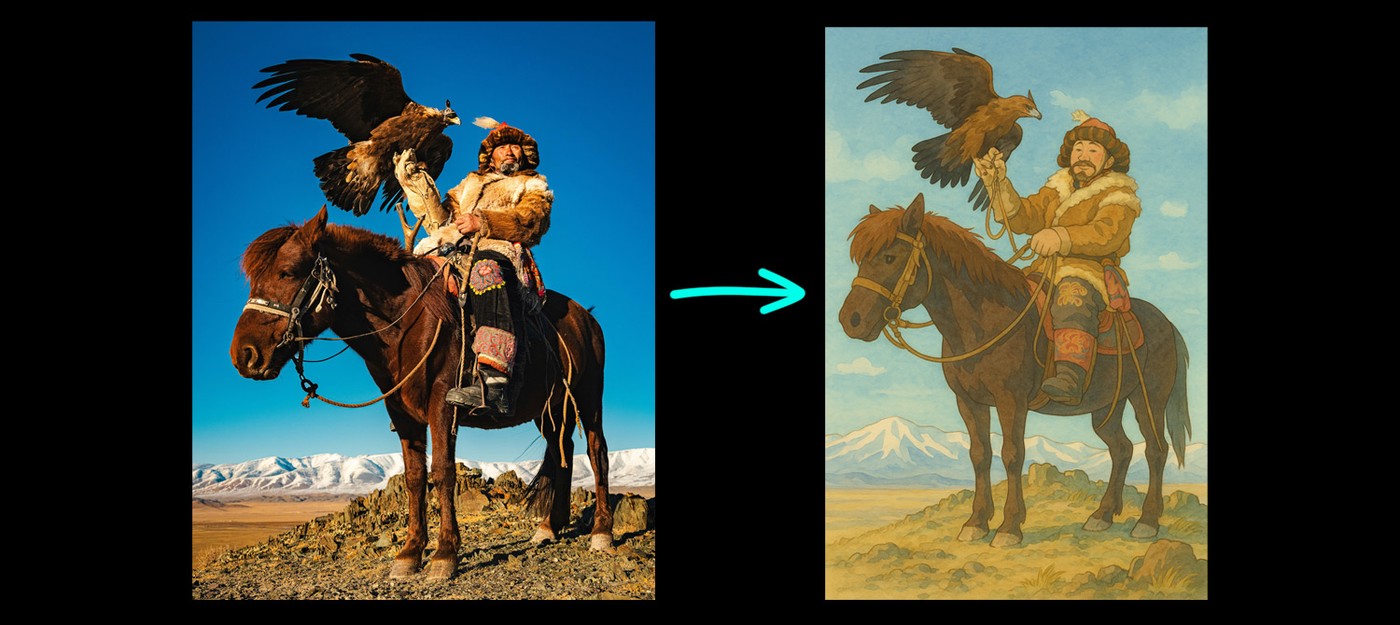
ChatGPT's image transformation capabilities, powered by OpenAI's GPT-4o model, allow you to convert ordinary photos into stunning artistic renderings. Here's a complete guide to using this feature effectively.
Getting Started
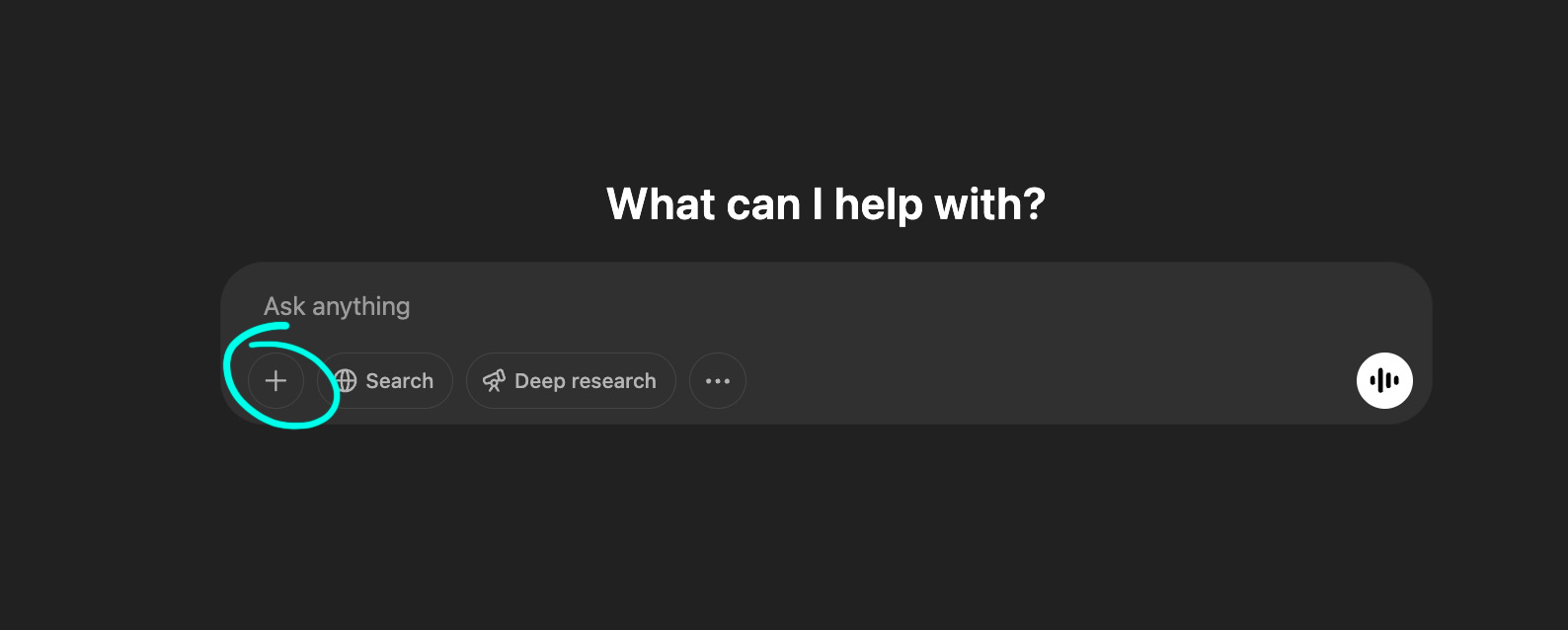
Access ChatGPT: Visit the ChatGPT platform and log in to your account
Upload Your Photo: Click the "+" icon in the chat interface to upload your image
Enter a Descriptive Prompt: Type your styling request in the text field
Download Your Creation: After ChatGPT generates the transformed image, you can download it
Note: Free users are limited to approximately three image generations per day
Crafting Prompts
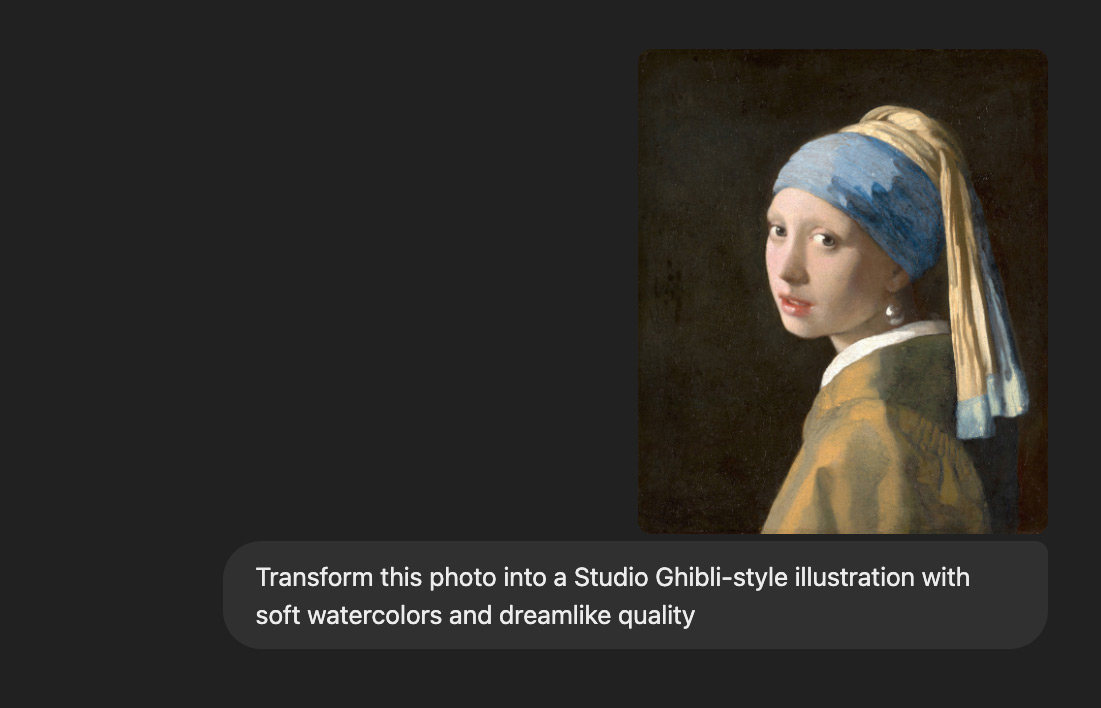
The key to getting great results is writing specific, descriptive prompts. Instead of vague requests like "make this artistic," try detailed descriptions such as:
Transform this photo into a Studio Ghibli-style illustration with soft watercolors and dreamlike quality
Render this landscape as an impressionist painting with visible brushstrokes and vivid sunset colors
Convert this portrait into pop art with bold outlines, primary colors, and halftone patterns
Make this picture look like it is a character inspired by the Simpsons style
Artistic Styles to Explore
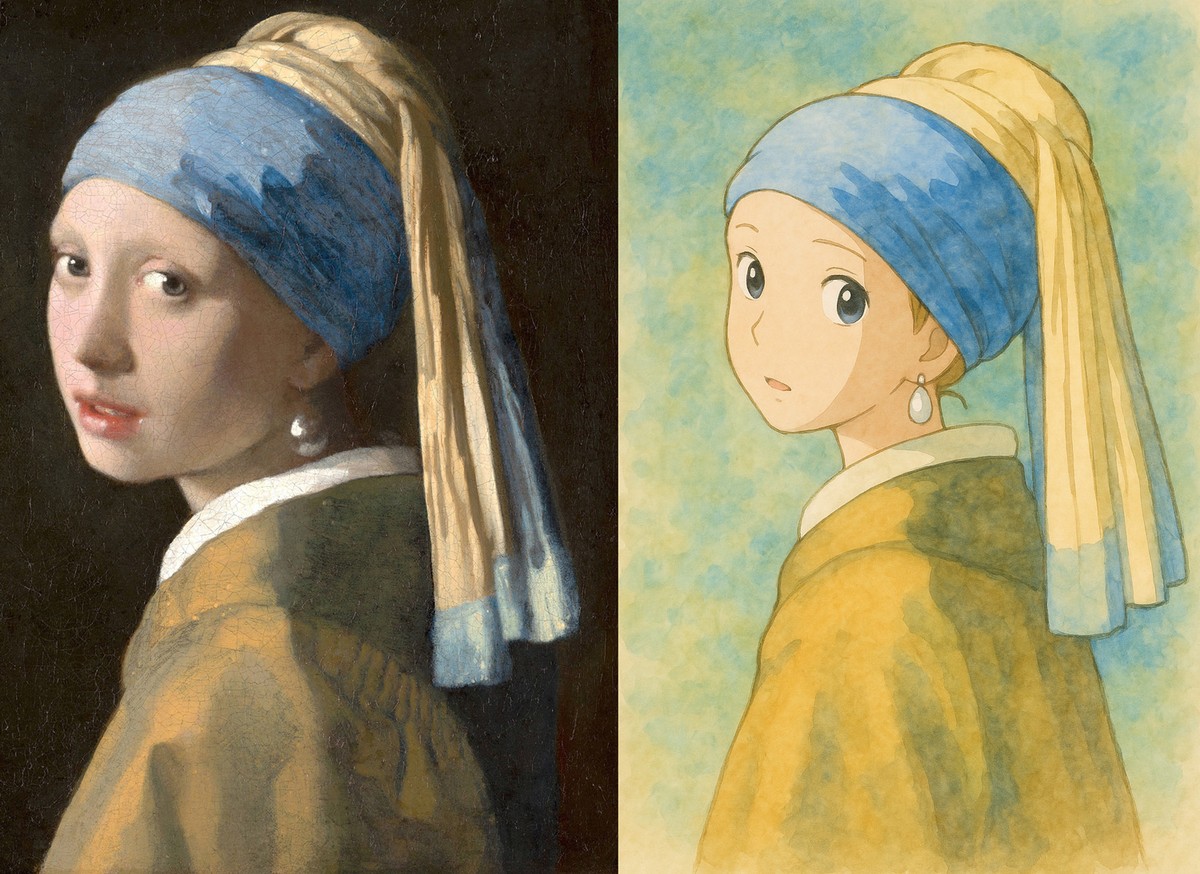
Here are some artistic styles you can experiment with:
Studio Ghibli: Cute, animated scenes with soft colors and detailed backgrounds
80's Anime: Classics of animation
The Simpsons: Classic cartoon characters with solid colors and thick lines
Impressionist: Emphasis on light, color, and visible brushstrokes
Pop Art: Vibrant colors, bold outlines, and commercial imagery
Minimalist: Clean lines, limited color palette, and simplified forms
Cubist: Abstract geometric shapes and fragmented perspectives
Futurist: Dynamic movement, technology themes, and energetic lines
Art Deco: Geometric patterns, symmetry, and luxurious detailing
Abstract Expressionism: Emotional, spontaneous brushwork with bold colors
Pencil Sketch: Detailed linework with realistic shading and texture
8-Bit/Pixel Art: Blocky pixelated graphics with limited colors
Claymation: Three-dimensional, textured appearance like stop-motion clay animation
Tips for Best Results
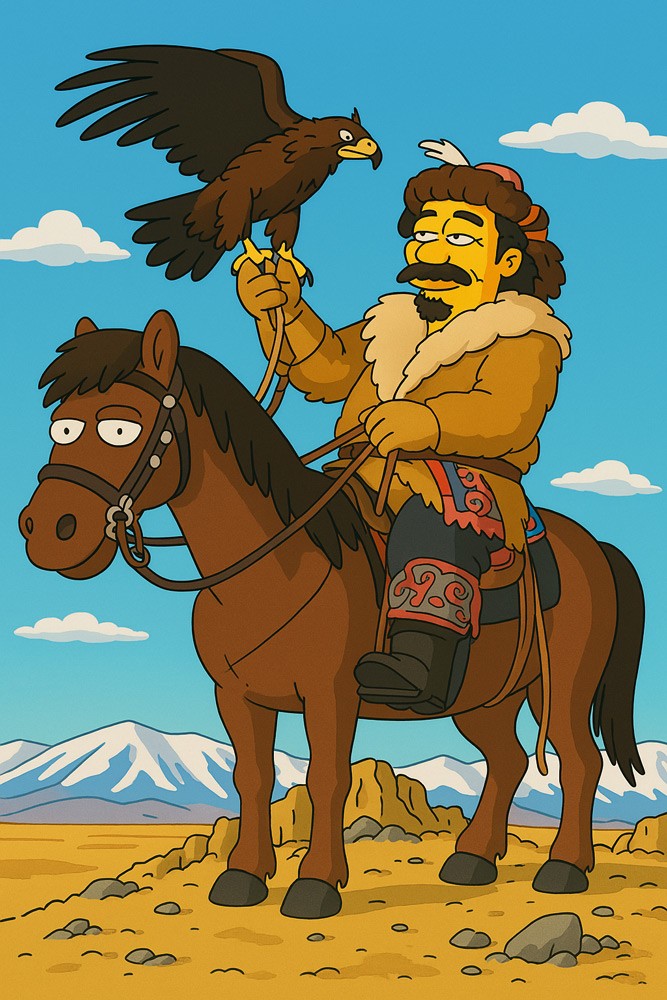
Be Specific About Colors: Mention color schemes ( "warm autumn tones" or "cool blues and purples")
Reference Art Movements or Artists: Try "in the style of Van Gogh's Starry Night" or "reminiscent of Warhol's celebrity portraits"
Describe Textures and Materials: Specify "rough canvas texture," "smooth watercolor blending," or "thick impasto brushstrokes"
Experiment with Multiple Attempts: If you're not satisfied with initial results, refine your prompt with different details or styling cues
Consider the Image Content: Some photos may transform better into certain styles based on their subject matter and composition
Limitations
While impressive, ChatGPT's image generation has some constraints:
It may not perfectly replicate every style
Complex or very specific requests might require multiple refinements
Results can vary based on the quality and content of your original photo
By following these guidelines and experimenting with different artistic directions, you can transform ordinary photos into unique creative pieces that express your personal aesthetic vision.